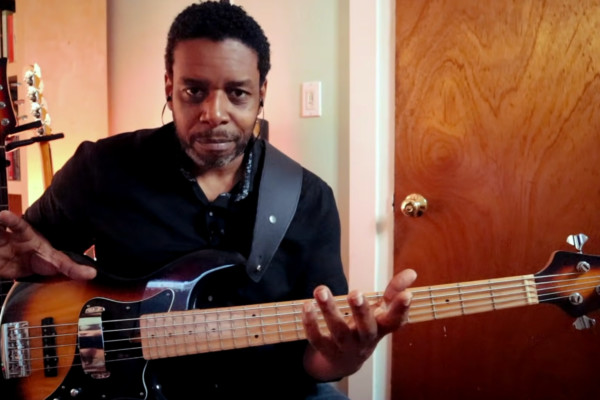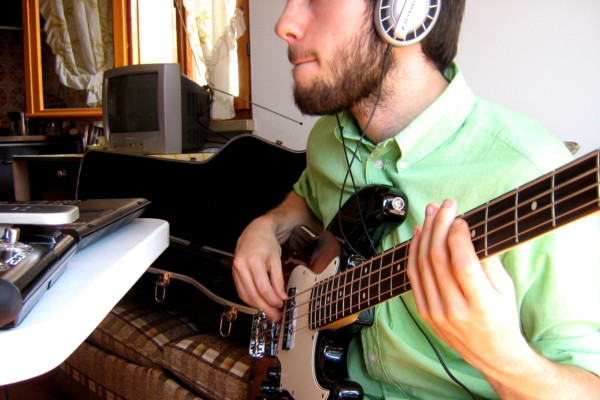Practice Routines
Q: How would you describe a good practice session and how would you break it down?
A: I think I’ve probably answered this in different ways in past columns, depending on the topic. In short, I’d tailor the practice time and routine based upon your own personal attention span and needs.
I have the problem of getting bored quickly when playing by myself. I need interaction to keep my interest up, so I tend to break up my practice routine.
I start with 15 minutes of focused practice. For example: running a scale over and over again. After 15 minutes of very intentional practice, I’ll then allow myself to just play along to some tunes or do whatever I feel like doing, musically speaking. I’ll let my creative side have some fun for 10 to 15 minutes, but then I’ll switch gears and get back to real practice again for 15 minutes. Rinse and repeat. Ideally, getting a few hours in each day!
For me, this alternating back and forth between a hard focus and free form keeps my short attention span in check.
What you need to work on makes a difference. When I’m learning tunes for a gig, I’ll just repeat the songs over and over again for hours until I have them. I’ll do this daily to keep them fresh. Lately, I’ve been working on memorizing a set of music for a pop tour in Canada, so I’ve spent a few hours every single day running the set. I started by making a cheat sheet for myself, and I’ve slowly been erasing bits and pieces from the cheat sheet until it’s down to just the set-list.
The important thing is to know how you operate. I’m a visual learner, so this method works well for me in as much as I wind up with an almost photographic image of the music in my head. This will eventually lead to me simply knowing the material.
Some may operate better if they just learned the material by ear and internalized it that way. Once you discover what methods work best for YOU than it’s up to you to get creative and develop your own routines.
If you’re just starting out, then I would recommend working with a teacher to figure out what your needs or deficiencies are on the instrument, and then simply buckle down and work hard and without distraction for at least an hour per day.
Have a question for Damian Erskine? Send it to [email protected]. Check out Damian’s instructional books, Right Hand Drive and The Improviser’s Path.




I think a big part of retaining information is repetition and rest. The mind will only retain so much from a practice session and it is important to repeat what you are working on. It is also important to get mental rest. If you are not in the state of mind to practice, you will probably not learn anything or retain anything. I learn songs for various cover bands and I find it helpful to learn the song and then listen to it over and over. I used an active listening approach. As the song plays I say the chord changes and the sections of the songs(i.e. I-IV-I, now chorus). If you can explain the song without it playing then you truly know the song by memory
I agree – when I pick up the my bass and try to practice dead tired – I feel like I wasted my time. I retain very little. On the other hand I have practiced for a long time with no structure and felt the same.
[…] http://www.notreble.com/buzz/2010/09/22/ask-damian-erskine-practice-routines/ […]